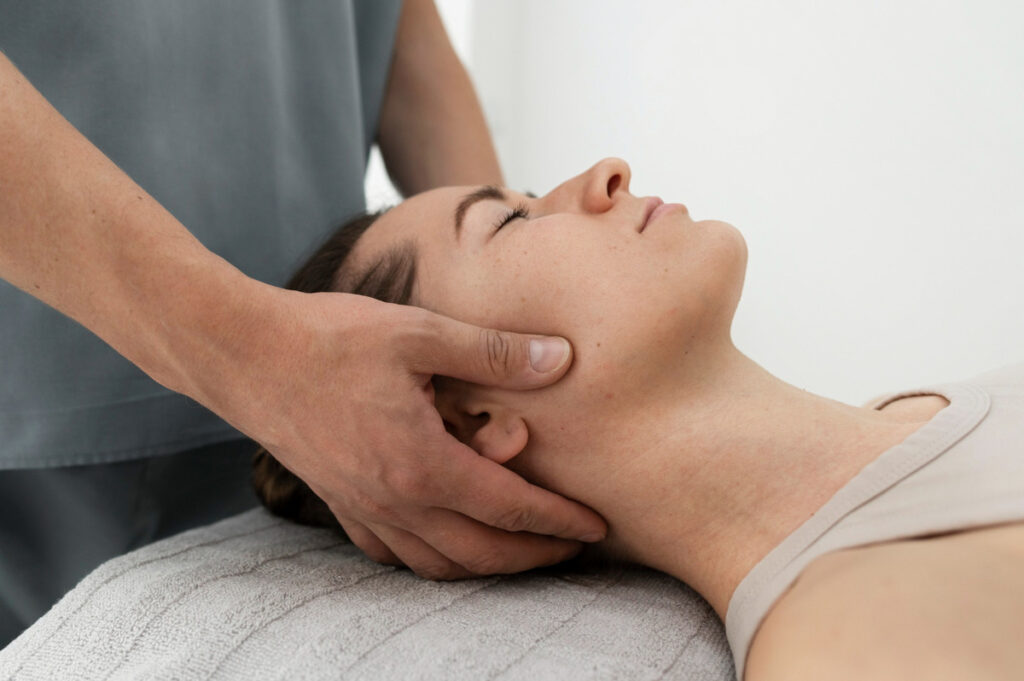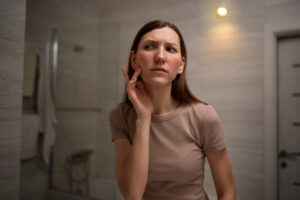Craniosacral therapy for tinnitus is gaining attention as a complementary treatment for people who struggle with persistent ringing or buzzing in their ears.
Tinnitus affects millions of Americans and is often linked to issues such as noise-induced hearing loss, stress, temporomandibular joint (TMJ) dysfunction, and neurological imbalances.
Conventional medicine has limited solutions for tinnitus, which is why many patients look for holistic or alternative therapies.
Craniosacral therapy offers a gentle, hands-on approach aimed at reducing stress and restoring balance to the body.
Understanding how it works and its potential role in managing tinnitus is key for anyone exploring non-invasive options.
Craniosacral Therapy for Tinnitus
Craniosacral therapy is a bodywork technique developed from osteopathic medicine that uses very light touch to assess and release restrictions in the craniosacral system.
This system includes the membranes and cerebrospinal fluid surrounding the brain and spinal cord.
Practitioners believe that by improving the flow of this fluid and reducing tension in the fascia and connective tissues, craniosacral therapy can enhance the body’s natural healing processes.
For tinnitus sufferers, this therapy may help reduce the intensity of symptoms by improving nervous system regulation and decreasing stress-related muscle tension.
The process typically involves the practitioner placing their hands gently on the patient’s skull, spine, or sacrum and using subtle movements to release restrictions.
Sessions are non-invasive, relaxing, and usually last about 45 to 60 minutes.
While craniosacral therapy is not a cure for tinnitus, some individuals report symptom relief and improved well-being.
How Craniosacral Therapy Works
The therapy is based on the idea that the craniosacral system influences the central nervous system.
By restoring balance and fluid motion in this system, practitioners aim to reduce stress, improve circulation, and support neurological function.
Light touch techniques target areas of restriction or imbalance that may be contributing to tinnitus.
For example, muscle tension around the jaw, neck, or skull can interfere with auditory processing and worsen ear ringing.
Craniosacral therapy seeks to release these tensions, allowing for greater relaxation and better function of the auditory pathways.
Why It Might Help with Tinnitus
Tinnitus is often aggravated by stress, poor circulation, or musculoskeletal imbalances.
Craniosacral therapy addresses each of these factors through nervous system regulation and tension release.
Reducing stress can lower the perception of tinnitus, as anxiety often heightens awareness of internal sounds.
Improved circulation may enhance oxygen and nutrient delivery to the auditory system.
Releasing restrictions around the temporomandibular joint or cervical spine can alleviate pressure on nearby nerves and structures that contribute to tinnitus.
Together, these effects may explain why some individuals experience relief after craniosacral sessions.
What the Research Says About Craniosacral Therapy and Tinnitus
Scientific studies on craniosacral therapy for tinnitus are limited, but early findings and case reports show potential.
Some small-scale trials suggest improvements in stress, sleep quality, and perception of tinnitus after a course of craniosacral sessions.
However, larger clinical studies are needed to confirm its effectiveness.
At present, most evidence is anecdotal, with many patients reporting subjective improvement.
Experts caution that while craniosacral therapy may help some people, it should not replace conventional care.
Instead, it can be considered a complementary option alongside established treatments such as sound therapy or cognitive behavioral therapy.
Benefits and Limitations of Craniosacral Therapy
The main benefits of craniosacral therapy include deep relaxation, improved sleep, reduced muscle tension, and enhanced overall well-being.
For tinnitus patients, these outcomes can indirectly lessen the severity of ear ringing.
Some individuals also find that craniosacral therapy reduces associated symptoms like headaches, jaw pain, or neck stiffness.
However, there are limitations.
The therapy requires skilled practitioners, results vary widely, and scientific validation is still limited.
Insurance may not cover sessions, making cost a consideration.
Despite these challenges, many people find value in craniosacral therapy as part of a holistic approach to tinnitus management.
Other Complementary Therapies for Tinnitus Relief
In addition to craniosacral therapy, other non-invasive options may provide relief.
Sound therapy, such as white noise machines or tinnitus maskers, helps reduce the perception of ringing by introducing background sounds.
Cognitive behavioral therapy can change the way patients respond emotionally to tinnitus, lowering distress levels.
Mindfulness meditation has been shown to improve coping skills and reduce anxiety associated with tinnitus.
Physical therapy or chiropractic care may help if musculoskeletal issues in the neck or jaw are contributing factors.
Together, these approaches create a comprehensive plan for managing tinnitus symptoms.
Natural Support for Ear Health and Tinnitus Relief
While exploring therapies like craniosacral treatment, many individuals also seek natural supplements to support ear health.
Sonus Complete is a 100% natural supplement designed to help reduce the intensity of tinnitus symptoms.
Its formula includes vitamins, minerals, and herbal extracts such as vitamin B12, hibiscus, garlic, olive leaf, and hawthorn berry, all known for their antioxidant and neuroprotective properties.
These ingredients work together to improve circulation, reduce inflammation, and support nerve health.
For those with tinnitus aggravated by stress or poor circulation, Sonus Complete may complement therapies like craniosacral treatment.
It is free of stimulants, non-GMO, and produced in FDA-approved facilities.
Many users also report secondary benefits such as better sleep, improved focus, and reduced anxiety.
Gentle Therapy, Natural Support, and a Path Toward Relief
Craniosacral therapy for tinnitus offers a gentle, holistic way to reduce stress and improve quality of life for those dealing with persistent ear ringing.
While more research is needed, its focus on relaxation and nervous system balance makes it an appealing complementary option.
Combining this therapy with natural support such as Sonus Complete may provide additional relief and promote better ear health.
If you want to know more about how Sonus Complete can support your journey, visit this page and explore its potential benefits for tinnitus relief.









